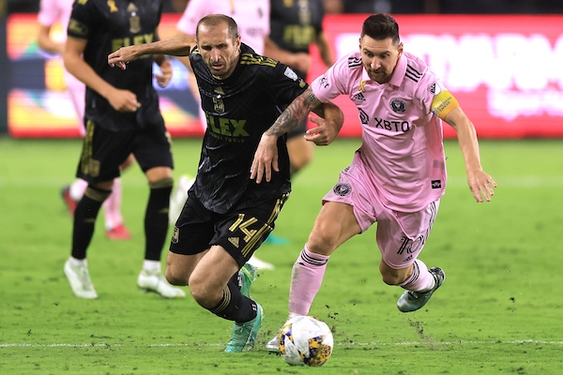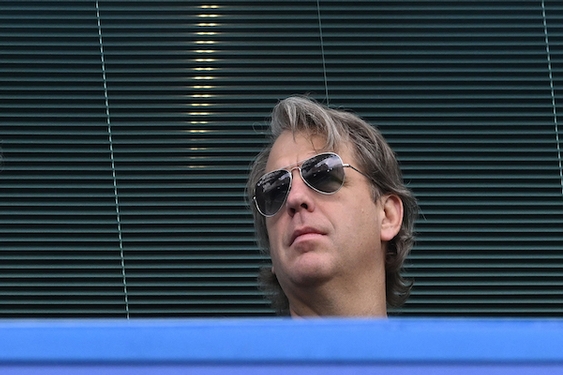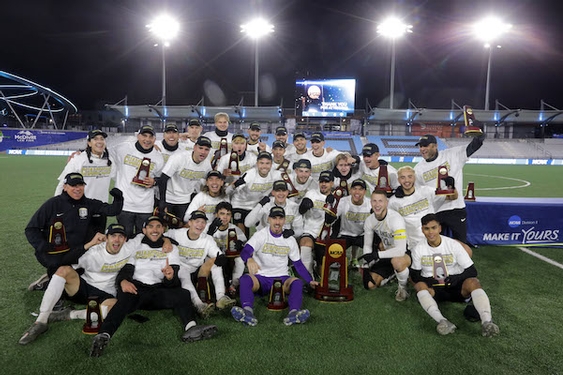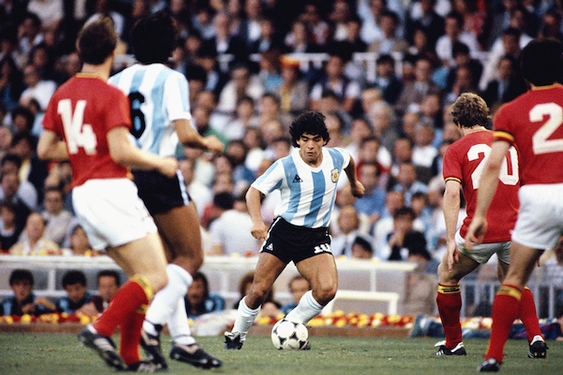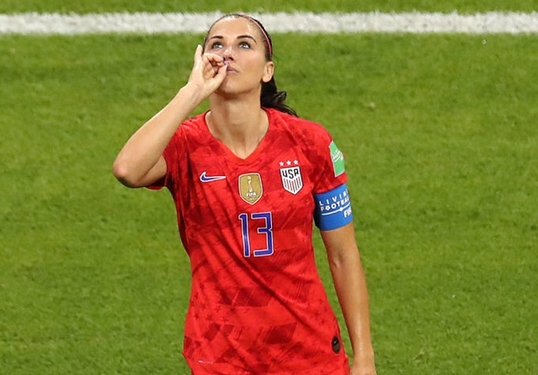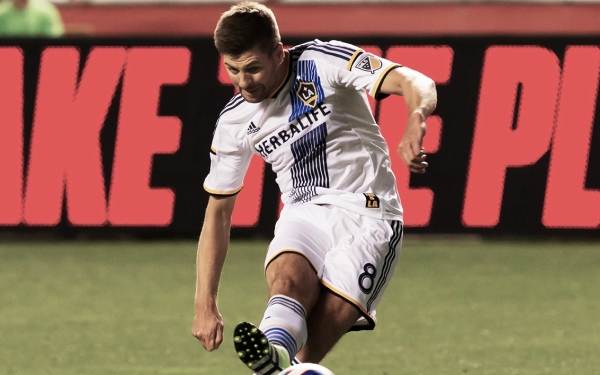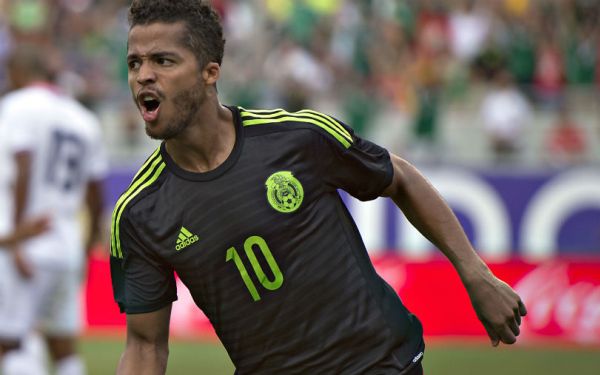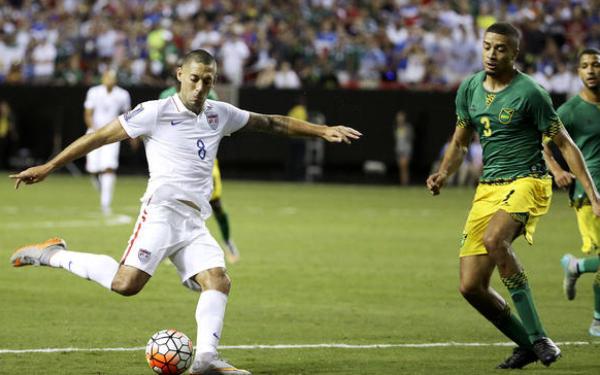David Beckham, the British midfielder whose championship-filled soccer career has been surpassed only by his status as a worldwide sports-pop icon, signed a deal to play for the next five seasons with the Los Angeles Galaxy.
Beckham, 31, has forged a relationship with the Galaxy's owners, Anschutz Entertainment Group, over the last year, playing host to AEG-sponsored soccer camps last summer in the Los Angeles area. He says he had an offer to extend his current contract with Real Madrid of Spain for two more seasons but had been contemplating playing in the United States for some time.
“After discussing several options with my family and advisers to either stay here at Madrid or join other major British and European clubs, I've decided to join the Galaxy,” Beckham says in a statement. “I look forward to the new challenge of growing the world's most popular game in a country that is as passionate about its sport as my own.”
Neither MLS nor AEG would disclose terms of the deal. But industry experts estimate the combined value of his MLS compensation with commercial opportunities to be in excess of $250 million.
Beckham becomes the first MLS player acquired via the league's new designated player rule, which allows the signing of players whose salaries fall outside the team salary budget.
“I think he can [earn $250 million],” says Tim Leiweke, president and CEO of AEG. “A lot of that is tied into commercial interests. I'm sure David will continue to be one of the highest-paid athletes in the world.”
In 2003, Beckham moved from Manchester United in England to Real Madrid for a transfer fee of $41 million.
Since its inception in 1996, MLS has never had a player possessing close to the worldwide iconic status of Beckham, whose popularity and profile skyrocketed when he married Victoria Adams, a member of the pop singing group The Spice Girls, in 1999, and had a movie, Bend It Like Beckham named after his patented free kicks, in 2002.
“Obviously, it's a very, very memorable day, not just in the history of the league, but the history of the sport,” MLS commissioner Don Garber says. “I think it shows an increased interest and popularity in the league and sport in this country, and I want to thank David Beckham for his interest in both.”
Garber goes on to call Beckham “a global icon who will transcend the sport of soccer in America.”
Among the most thrilled organizations in the deal was ESPN, which not long ago agreed to a partnership with MLS to televise weekly games on Thursday nights on ESPN2.
“From my perspective, the signing of David Beckham is the next step in the league's evolution into a major player in world soccer,” says Scott Guglielmino, vice president of programming at ESPN. “His iconic stature is going to drive sampling of MLS from fans who might not otherwise sample soccer. I don't think there's any doubt it will help grow the game.”
Not all are convinced, however.
“A lot of people think it will be impossible to change people's perception of [soccer] as a game for 14-year-old girls into a sport that's mainstream enough to challenge American football and baseball,” Oliver Holt, chief soccer writer for the Daily Mirror newspaper in London, tells the Cox News Service.
The signing of Beckham for huge money also harks back to the dark, late days of the North American Soccer League back in the 1970s. When that league began signing superstar foreign players such as Pele and Franz Beckenbauer for big bucks, it marked the beginning of the road to bankruptcy for that league.
“The differences are, this league is much more stable,” Leiweke says, “because of single entity [ownership structure], a strong ownership group and soccer-specific stadiums being built all around the country.
“There's not a belief David Beckham can single-handedly make the league relevant because the league is relevant. David will make the league more relevant, not only at home, but around the world.”
Of course, all the showbiz flash would mean nothing if Beckham also didn't play a great game. He's the only Englishman to have scored in three successive World Cups, and he finished as runner-up in the European Footballer of the Year voting in 1999 and for FIFA World Footballer of the Year in 1999 and 2001.
However, his playing time with Real Madrid shrank over the last two seasons, which might have prompted his decision to transfer.
“At the end of the day, this is about soccer and the 90 minutes on the field,” says Alexi Lalas, Galaxy general manager and an American soccer icon. “The guy is a great player, has played for storied clubs, and is a winner.”
© 2007, The Kansas City Star.
Distributed by McClatchy-Tribune Information Services.




